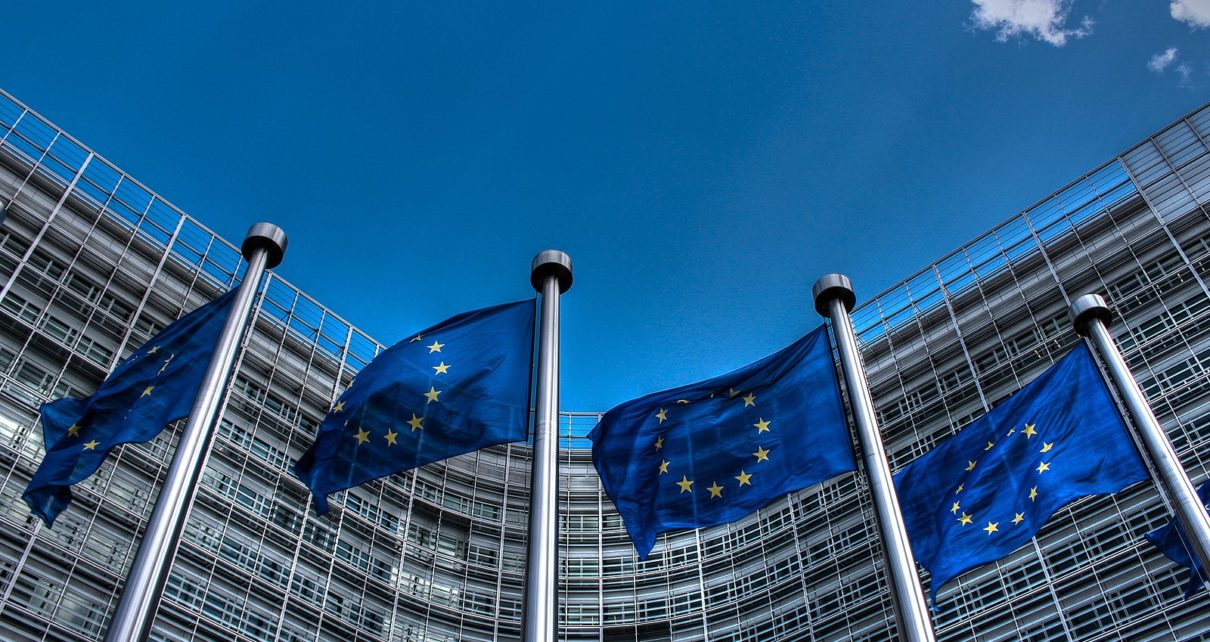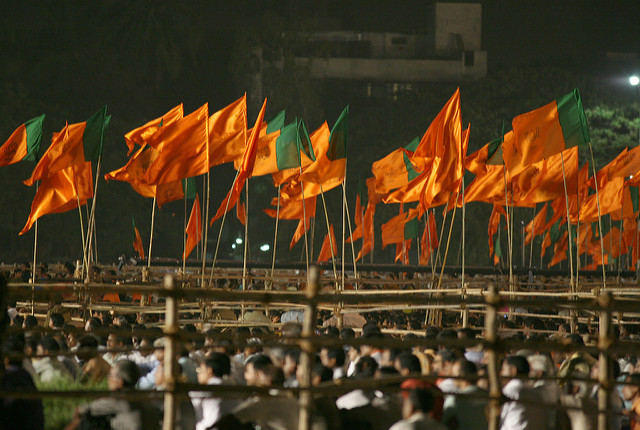Since Russia’s full-scale invasion of Ukraine, the threat of pro-Kremlin disinformation in Europe has become a matter of increasingly pressing concern. This is particularly true for NATO members that provide Ukraine with significant military and humanitarian aid. Between February and March of 2022, Russia’s state budget for mass media increased by 433 percent, as “the audience and reach of Kremlin-aligned social media accounts increased substantially all over Europe,” according to a recent EU Commission’s report. Moreover, approximately 40% of all disinformation campaigns in EU countries were related to narratives about Ukraine. With the continued rise of Russian disinformation, this article seeks to explore how Russia employs disinformation as one of its tools of hybrid warfare, adapting narratives to play on region-specific contexts, including ethnic, regional, and historical divisions. In particular, the analysis will focus on the narratives and their impacts on Eastern, Central and Western Europe, regions with differing relationship ties with Russia. Understanding pro-Kremlin disinformation and its influence across Europe is critical, especially with the potential rise of disinformation targeting the upcoming 2024 European Parliament election.
The Center for European Policy Analysis (CEPA) found that Russia employs a “chaos strategy” of hybrid warfare, wherein disinformation, among other tools, is used to create chaos in target countries, negating the need for direct military engagement with NATO. The goal of Russian disinformation through the chaos strategy is not to propagate a constructive version of the truth. Rather, the aim is to sow doubt by spreading an overwhelming amount of conflicting information, sending the public into a “decision paralysis,” unable to act and form concrete opinions on pressing issues.
Pro-Kremlin Disinformation in Central & Eastern Europe (CEE)
Pro-Kremlin disinformation narratives in Central & Eastern Europe (CEE) target the region’s long-standing socio-political and cultural relations with Russia. The Soviet Union is presented as historically the “only legitimate state,” while post-Soviet countries are labeled as illegitimate and ineffective without Russian cooperation. Moreover, CEE countries are said to be controlled by the “collective West” through its “agents” such as NATO and the EU. Narratives such as, “NATO is at war with Russia in Ukraine,” and that sending military air to Ukraine provokes Russia and brings the West closer to the war, are rampant. These perspectives aim to undermine the public’s certainty of their leadership’s agendas and, in turn, create a sense of powerlessness through the idea of citizens being exploited by their own governments. The manipulation and distortion of history is another disinformation tactic Russia uses to create division in CEE societies. Building the narrative of Russian-Bulgarian unity by emphasizing the Russian Empire’s role in liberating Bulgaria in the Russo-Turkish war of 1877-1878, exploiting the history of Ukrainian, Polish, and Lithuanian nationalists collaborating with Nazis in WWII to label modern states as “Nazi,” and using NATO’s bombing of Serbia during the Yugoslav Wars to fuel anti-West sentiment are a few examples of historical manipulations employed to support pro-Kremlin narratives.
Despite the rampant disinformation narratives spread across CEE countries, GLOBSEC’s Trends 2023 report found that most CEE countries have a high degree of trust in NATO and generally perceive Russia as a threat. However, the report shows a sharp decline in Slovakia’s public attitudes concerning backing Ukraine and supporting EU and NATO membership. This trend supports the Warsaw Institute’s warning that, “Slovakia could become a fertile ground for the dissemination of Russian anti-NATO and anti-Euro narratives to thrive.” The stakes are especially high as the pro-Kremlin SMER party led by the former Prime Minister Robert Fico won the recent parliamentary elections. In Bulgaria, which experienced a nearly tenfold increase in pro-Kremlin news following Russia’s invasion, one-fourth of citizens still consider Russia to be a strategic partner. The increase in Russian disinformation, in combination with Bulgaria having a pro-Russian element and being one of Europe’s weakest democracies, places the country at risk of also becoming “ground zero” for Russian disinformation to spread across NATO and EU countries.
Pro-Kremlin Disinformation in Western Europe
While not as rampant as disinformation in CEE countries, pro-Kremlin narratives are also prevalent in Western Europe, especially in Germany and France, key NATO Allies supporting Ukraine through aid and sanctions against Russia. Messages disseminated across Western Europe are primarily intended to sow doubts surrounding the effectiveness of sanctions against Russia, spread allegations of “barbaric” crimes committed by the Ukrainian army supported by Western weapons and training, and accuse the West of Russophobia and Neo-Nazi ideology. The goal is to weaken the positive perception of the West’s involvement in Ukraine, hoping to polarize society and decrease NATO’s and the West’s engagement in the war. Despite Russian disinformation being on the rise in Germany, the majority of the public rejects pro-Kremlin disinformation narratives. However, a recent study conducted by a German nonprofit, the Center for Monitoring, Analysis, and Strategy (CeMAS), found an increase in levels of agreement amongst the German public with pro-Russian conspiracy narratives in 2022. In fact, last year, 40 percent of German citizens were found to “at least partially believe NATO is at fault in the Ukraine conflict,” a statistic having likely been cultivated by pro-Kremlin disinformation.
France has also experienced a rise in Russian disinformation campaigns with the recent uncovering of the Doppelganger and RRN campaigns (allegedly carried out by Russia), which targeted France by impersonating media and European government websites and creating polarizing content. A series of similar campaigns followed in advance of the 2023 Vilnius summit, spreading fake NATO press releases claiming that NATO was increasing its defense budget and supporting sending Ukrainian troops to France in response to the protests in the summer of 2023. While disinformation across Western European countries like Germany and France has been limited in its reach and effectiveness in changing public opinions, it has been potentially disorienting public perception, its ultimate goal being to destabilize the domestic and international order among the NATO Allies and the West.
The Heightened Threat of Russian Disinformation Leading Up to the 2024 European Parliament Election
2024 will mark the biggest election year in history, with more than 50 countries heading to the polls, including Germany, Slovakia, Czechia, Ukraine (potentially), the UK, and the European Union. 2024 might also be the biggest year for Russian disinformation yet, especially in Europe, as countries in time of elections are the primary targets of Russian disinformation. Susceptibility to disinformation is especially heightened during elections, as countries become more vulnerable due to internal unrest, which makes it easier to influence or sow confusion in public opinion. In fact, a Global Risk Report by the World Economic Forum has declared disinformation as the second largest threat to global peace and security in 2024 due to the unprecedented number of elections to be held this year. With studies showing the significance that disinformation can have on the results of elections, such as the Brexit referendum and the 2016 U.S. Presidential Election, mass elections across Europe, coupled with an already prevalent presence of Russian disinformation in the region, call for a growing concern about destabilization. Moreover, recently the head of the State Department’s office warned of potential upcoming Russian “information operations” amidst elections in Europe in an attempt to sway opinion on supporting Ukraine. Given that countries facing elections are more likely to be targeted by Russian disinformation, countries going into elections in 2024 should demonstrate heightened vigilance and set stronger mechanisms in place against disinformation.
Pro-Kremlin disinformation is opportunistic in its context-specific narratives as part of Russia’s “chaos strategy” hybrid warfare. While it has been unable to drastically change geopolitical orientations across CEE and Western European countries with individual disinformation campaigns, the compounding effects have the potential to disorient public opinions, creating a fog of confusion and distrust towards domestic governments, the West, and NATO. The threat of disinformation is an ever-more pressing concern in 2024, as numerous countries across Europe, as well as the European Union, are heading into elections. Countering the rising tide of pro-Kremlin disinformation in Europe is not just a matter of national security but a collective responsibility, imperative for preserving the unity and resilience of NATO and the West.
Photo: “European Union Flags 2” by Thijs ter Haar via Creative Commons licensed under CC BY 2.0.
Disclaimer: Any views or opinions expressed in articles are solely those of the authors and do not necessarily represent the views of the NATO Association of Canada.




